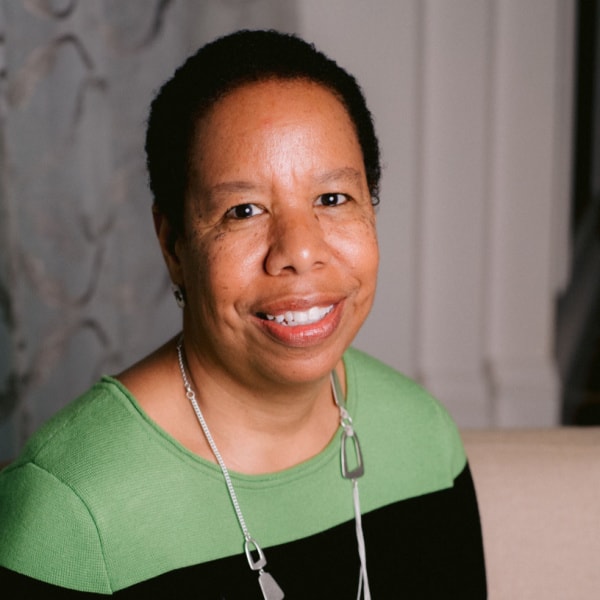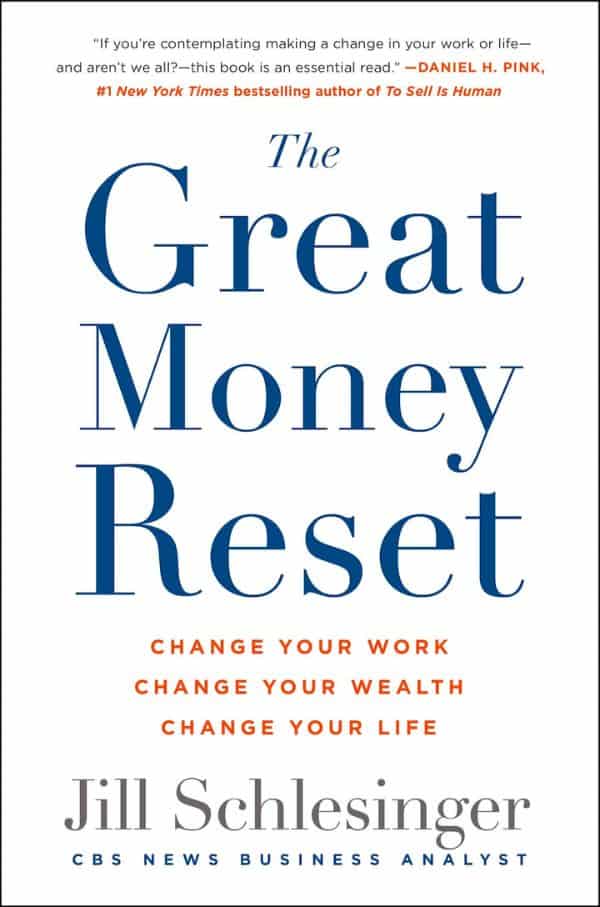The Great Money Reset – Book Review
(This page may contain affiliate links and we may earn fees from qualifying purchases at no additional cost to you. See our Disclosure for more info.)
The many fans of Jill Schlesinger – her podcast “Jill on Money,” her appearances on CBS News, or her 2019 destined-for-classic-status book “The Dumb Things Smart People Do With Their Money” – will likely need little convincing that the “The Great Money Reset” deserves a spot on their reading list.
For those unfamiliar with the Schlesinger style (New York City smart ass), her new book will be bracing and ultimately enjoyable.
“The Great Money Reset” is firmly planted in the post-pandemic world. It picks up at the point where the reader has already decided to fundamentally reset their life and livelihood, either by choice or unfortunate circumstance.
Whether it's early retirement, loss of a spouse, or a new career, the change is gonna come; now the questions are, “How do I execute this change? How can my money support my decision?”
A Peek Inside
Although Schlesinger does not deploy the acronym FINE (Financial Independence, New Endeavors) until almost the end of the book, “FINE” could very well have been the book's title.
It's her rebuttal to the FIRE (Financial Independence, Retire Early) movement, recognizing that not working – actual retirement – is often not the goal.
If there's one recurring theme in this book, it's that the resetting reader needs to be able to articulate the specific text of what they want from their life, not just the headline.
With that said, much of the advice proffered applies to any situation, and one could be forgiven for suspecting that a certain amount of literary padding may be at play.
Clearly, Chapter 2's (“Curb Your Consumption”) admonishment to live below your means need not have taken much more than a paragraph or two. With that said, the advice in the chapter on investing, while completely fundamental, probably can't be repeated often enough.
The book is at its strongest when it focuses on the specific money strategies to consider as you seek to operationalize your life reset.
“Put Your House in Order” (Chapter 6) is essential reading and can be summed up with one particular, compelling quote: “Equity equals choice…”
Her argument for why you may want to sell your home to support your reset is refreshing and perhaps contrarian.
“Resetters” are also well-advised to carefully scrutinize the money tactics proposed related to taxation generally and taxation of retirement investments specifically.

As tempting as it may be to gloss over the recitation of tax rates, you will come away convinced that a firm understanding of basic tax law is essential to your reset plan.
(On the other hand, the extensive real estate devoted to charitable giving tax strategies seems oddly placed in a book of this theme.)
Is entrepreneurship part of your plan? “The Great Money Reset” does not break any new ground here (Have plenty of financial runway. Test drive your idea before you quit your day job.).
Still, Schlesinger does consider a less explored reset, when and how to chart the selling of a successful business.
The uses and misuses of further education as part of your money reset are amply demonstrated by multiple examples centered on the question, “What education – how much, what type, from who – is actually required for your reset?”
Her vignettes illustrate how our non-financial biases about the varying paths to higher education influence our choices. If you consider further credentialing as part of your reset, this book is necessary for this chapter alone.
That is only one of many questions posed, of course. As is inevitable in any book of this nature, much of the prose employs the Socratic method.
To a great extent, “The Great Money Reset” is a list (a very long list) of questions that the reader can only answer.
These are the essential money-related questions you need to have answers for as you plan for how you'll make your reset a reality.
There is tremendous value in having that list at hand, even as the reader may sometimes pine for someone to provide the answers.
So, thank goodness for stories and Aunt Jill's passel of faux nieces and nephews.
The Stories
The most compelling parts of the book are the many real-life stories that Schlesinger relates, from friends, family (loosely defined), and callers into her show.
More than merely inspirational, they are informative in their demonstration of how people have specifically grappled with the messiness of their resets and come to money decisions that ultimately allowed them to achieve their goals.
I was glad to renew my acquaintance with Alan, whom I remembered from a 2021 episode of the “Jill on Money” podcast. His family's reset was occasioned by the realization that they simply could not sustain their current, seemingly envious lifestyle, despite a $300,000 annual income.
We meet up with Mike and Chantal, whose story illustrates how a couple can navigate a reset when only one is enthusiastic about the idea.
Lessons learned from Schlesinger's own father and his reset, occasioned by a serious health scare, also play a prominent role in this book.
One of the most compelling tales was that of Rebecca and Gene. Their adult children fought tooth and nail against their parent's Great Reset, vividly reminding us that family planning (no, not that kind) is, for many, a significant component of their plan.
To this end, the otherwise excellent “Family Planning” chapter would have benefited from more hands-on advice for parents of teenagers who are just old enough to appreciate the benefits – well as the possible disruption to their own plans – of their parents' potential life change.
Related:
- Saving for Retirement While Helping Kids & Parents
- How We Developed Couple Financial Goals
- Should You Financially Support Your Adult Children?
Final Thoughts
A quote from the book provides a fitting summary:
“Ultimately, planning for a Big Money Reset is about building more financial resilience and maximizing the opportunities open to us down the road.”
That is sage advice for anyone, whether they are actively contemplating a reset of their life or not.
Next: Bad Investing Advice: What to ignore [and why]

Article written by Lisa Whitley, AFC®, CRPC®.
Lisa enjoys having money conversations every day with people from all backgrounds. After a long career in international development, she brings a cross-cultural dynamic to her current work to help individuals and families achieve financial wellness.

